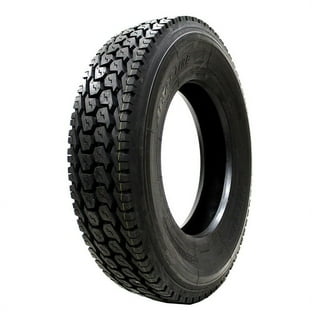Enjoy Big Savings on Discount Tires Morris IL: Shop Currently for Bargains
Tire Service: Understanding Tire Pressure Monitoring Equipments
Recognizing Tire Stress Monitoring Equipments (TPMS) is a crucial element of keeping optimum vehicle performance and safety and security when driving. With improvements in vehicle modern technology, TPMS has actually ended up being a basic function in modern-day automobiles, offering real-time information on tire stress degrees. Delving much deeper into the intricacies of TPMS, one can reveal the different parts that comprise this system and the importance of each in ensuring precise monitoring. From straight to indirect TPMS systems, the landscape of tire pressure tracking varies, each with its one-of-a-kind set of advantages and considerations. Keep tuned to decipher the intricacies of TPMS, from maintenance pointers to the indisputable benefits of keeping your tires properly pumped up. mopar tire service specials.

Value of TPMS
The significance of Tire Pressure Tracking Equipments (TPMS) depends on their capability to boost vehicle security and performance with real-time surveillance of tire stress degrees. Maintaining the appropriate tire pressure is vital for ensuring optimal handling, braking, and overall security of an automobile. TPMS supplies vehicle drivers with prompt responses on any kind of underinflated or overinflated tires, permitting for prompt modifications to be made.
Elements of TPMS
Sensors are usually situated in the tire shutoff stem or affixed to the wheel setting up, where they measure tire pressure and transfer data to the control component. Some advanced TPMS designs additionally display the real tire stress analyses for each tire, providing motorists with real-time details to make sure ideal tire performance and safety. By keeping track of tire stress continually, TPMS aids avoid crashes, lowers tire wear, and improves gas effectiveness, making it a critical element for lorry safety and efficiency. tires morris il.
Kinds Of TPMS

On the various other hand, indirect TPMS relies upon the vehicle's wheel rate sensing units to monitor tire pressure. This system discovers underinflation by contrasting the rotational speeds of the wheels. Indirect TPMS is much less expensive than straight TPMS, as it uses existing sensing units within the automobile.
While straight TPMS supplies a lot more precise readings, indirect TPMS is less complex her comment is here in design and typically calls for less upkeep. Both systems have their limitations and advantages, and the selection between them usually depends upon factors such as price, automobile make, and personal choice. Recognizing the differences between these 2 kinds of TPMS can assist car proprietors make informed decisions relating to tire upkeep and security.
TPMS Maintenance Tips
Conduct routine checks on the tire stress degrees and compare them with the TPMS analyses to ensure they are regular. During tire turning or replacement, make certain that the TPMS components are taken care of very carefully to stop any kind of potential damages. If the TPMS warning light illuminates on the control panel, deal with the concern immediately by examining the tire pressures and the total system for any mistakes.
Benefits of Appropriate Tire Stress
Keeping proper tire pressure, as highlighted in TPMS Maintenance Tips, is critical for reaping the numerous advantages linked with ideal tire pressure degrees. In addition, appropriate tire pressure makes certain also tire wear, prolonging the lifespan of the tires and advertising much safer driving conditions. In verdict, the advantages of appropriate tire stress go beyond simply tire long life; they encompass boosted fuel efficiency, boosted security, better lorry efficiency, and overall driving convenience.
Final Thought
Finally, recognizing tire stress monitoring systems (TPMS) is critical for preserving optimal tire stress and making sure vehicle safety. By identifying the value of TPMS, being acquainted with its elements, recognizing the various kinds readily available, sticking to correct maintenance pointers, and recognizing the advantages of maintaining appropriate tire pressure, drivers can improve their driving experience and lengthen the life expectancy of their tires. Proper tire stress is key to effective and safe lorry operation.
